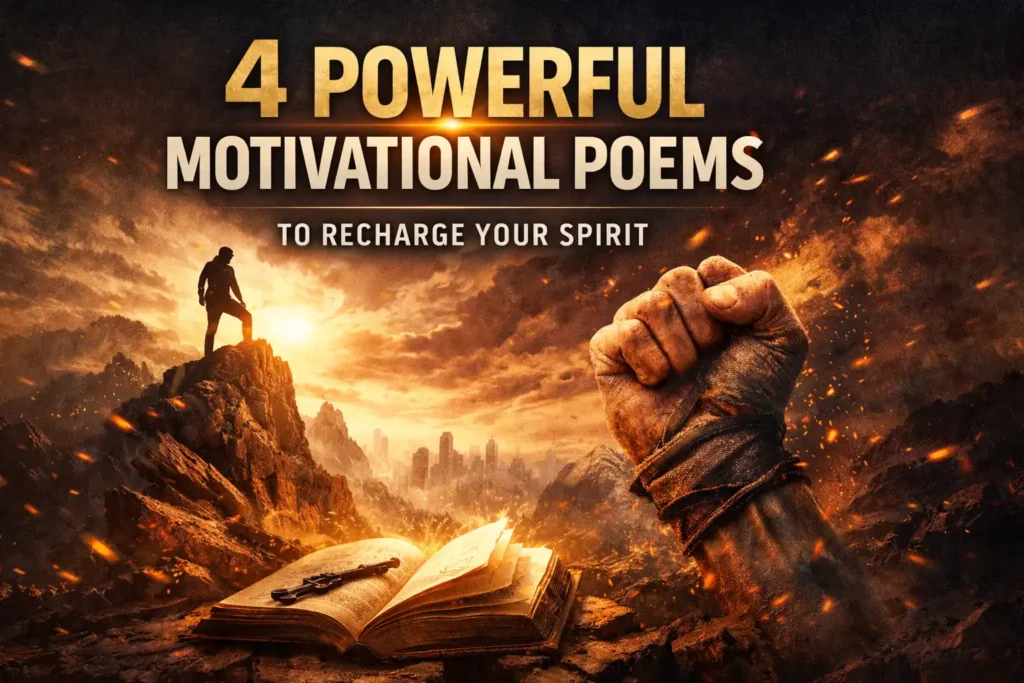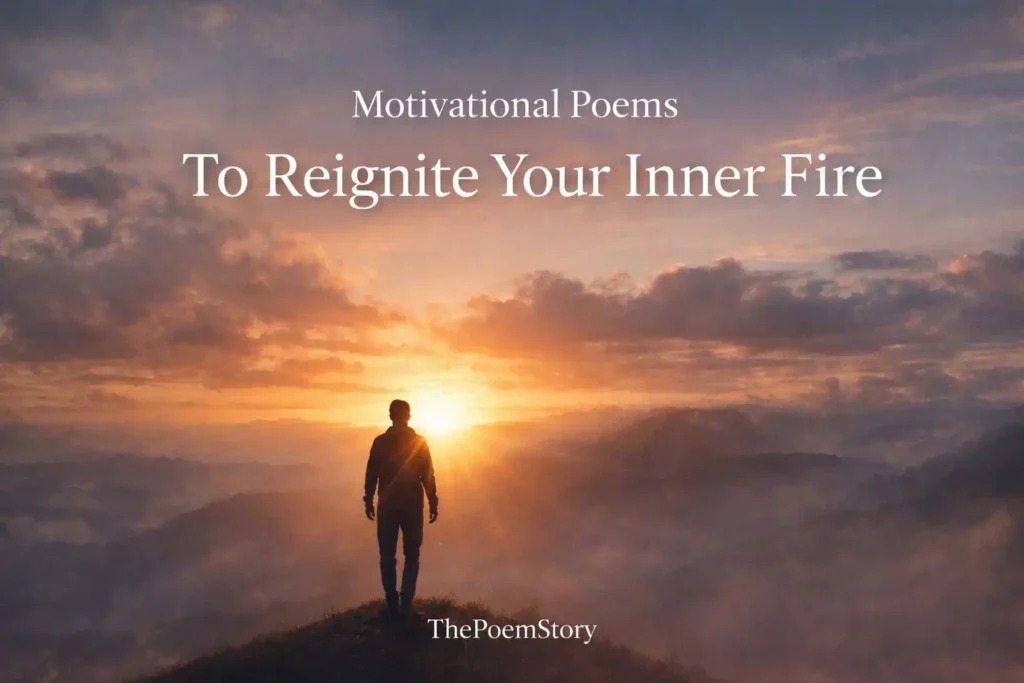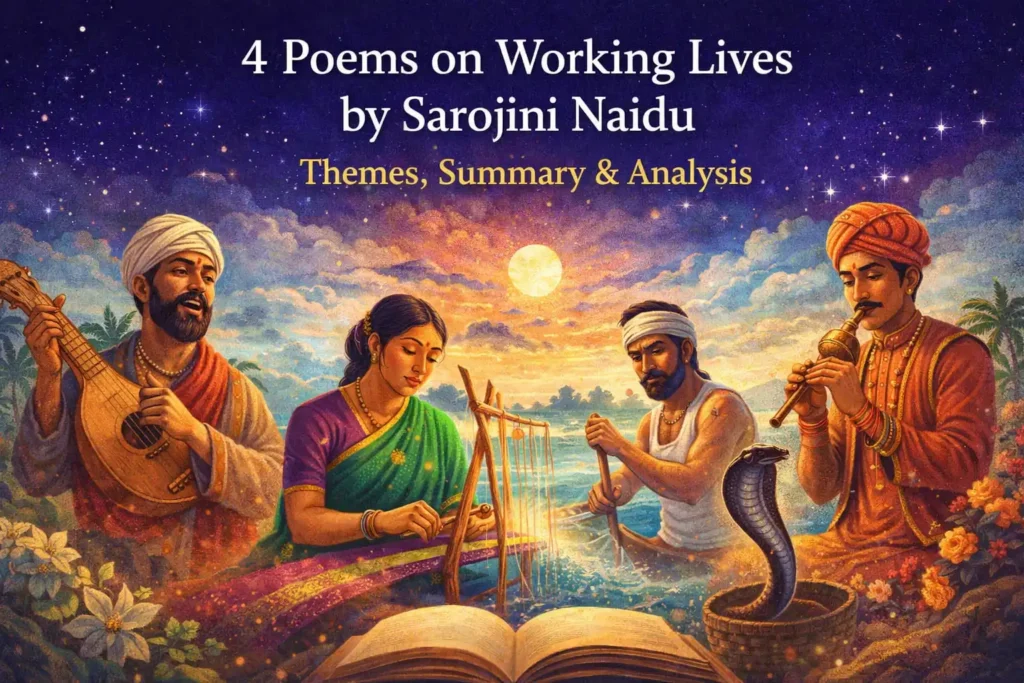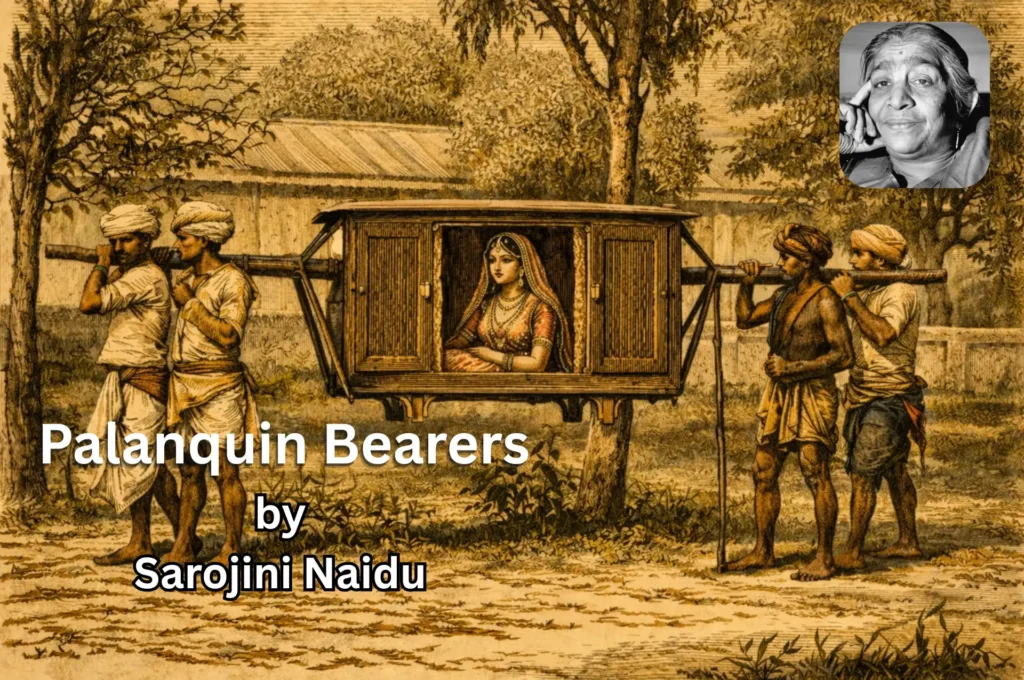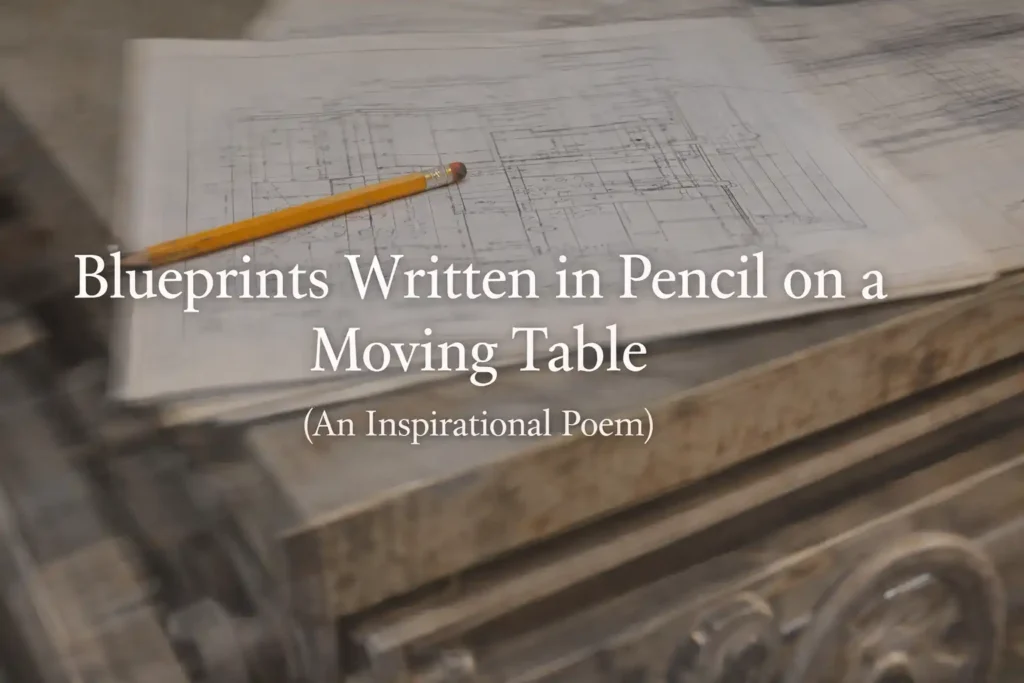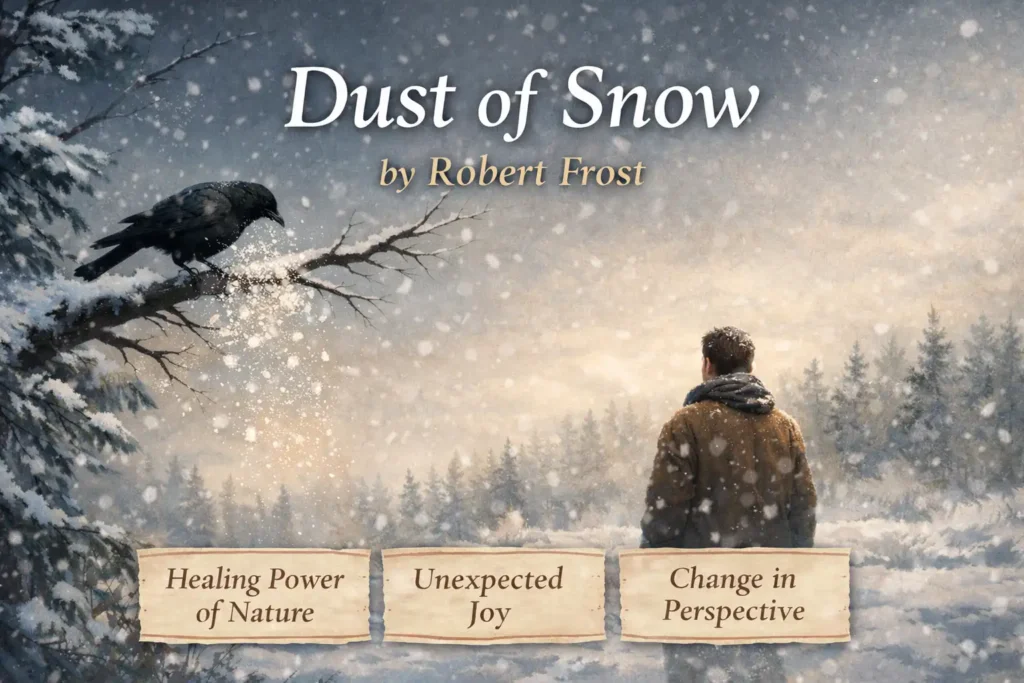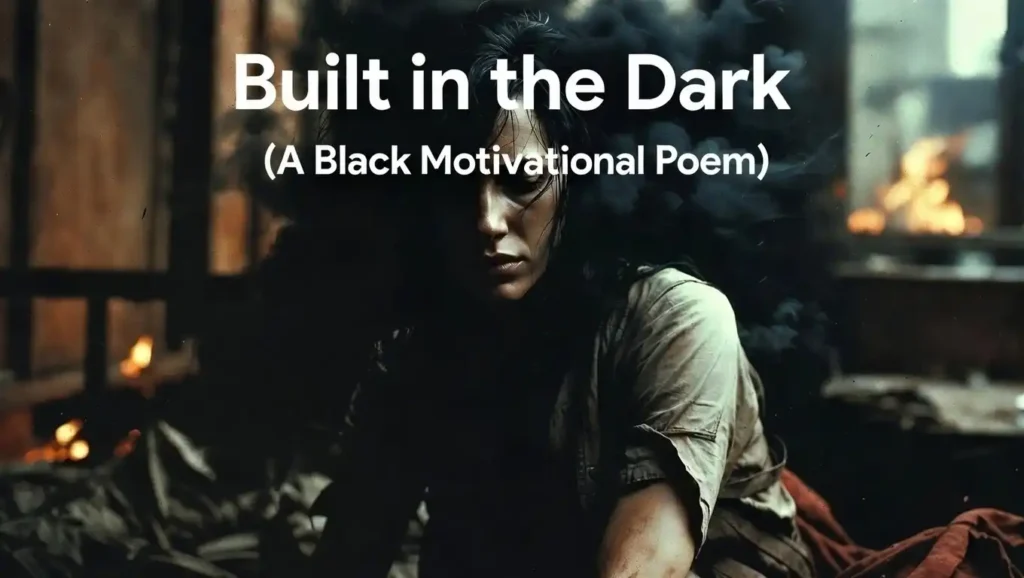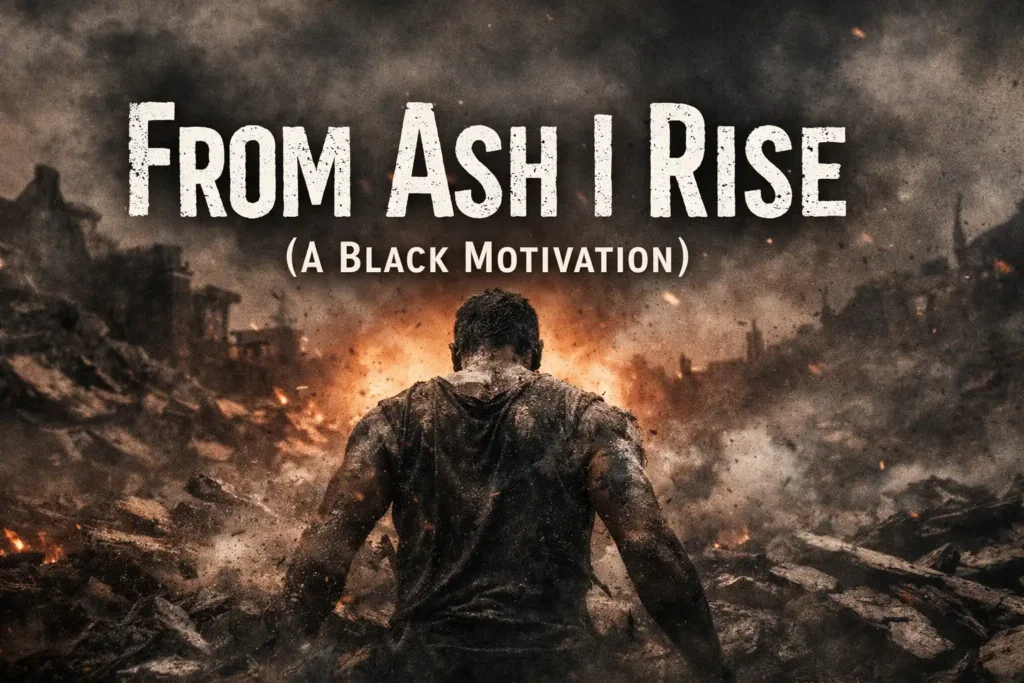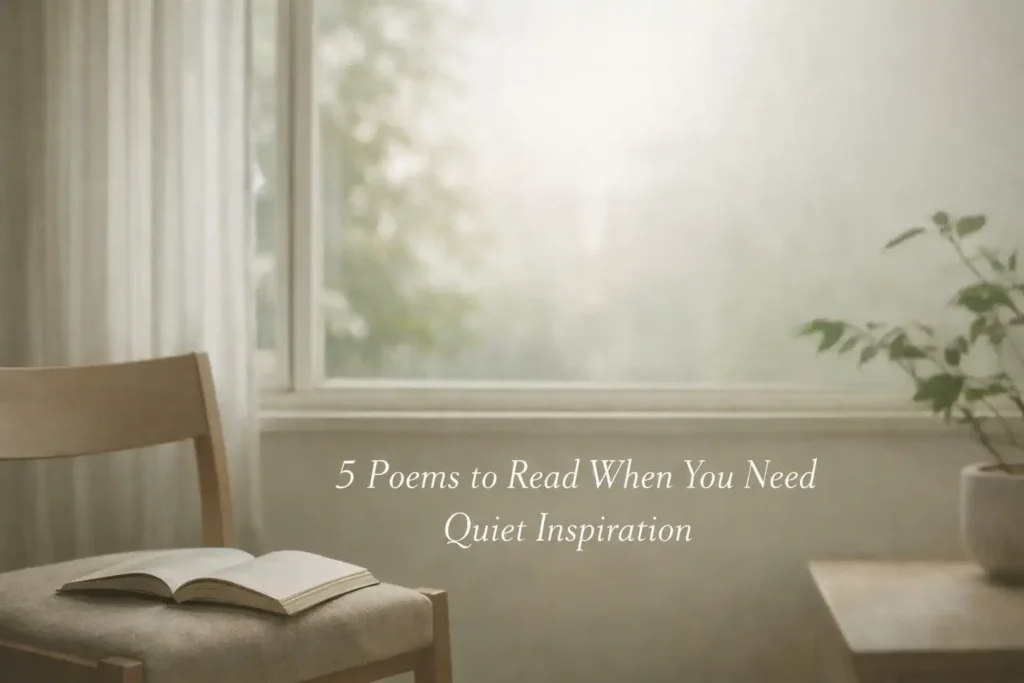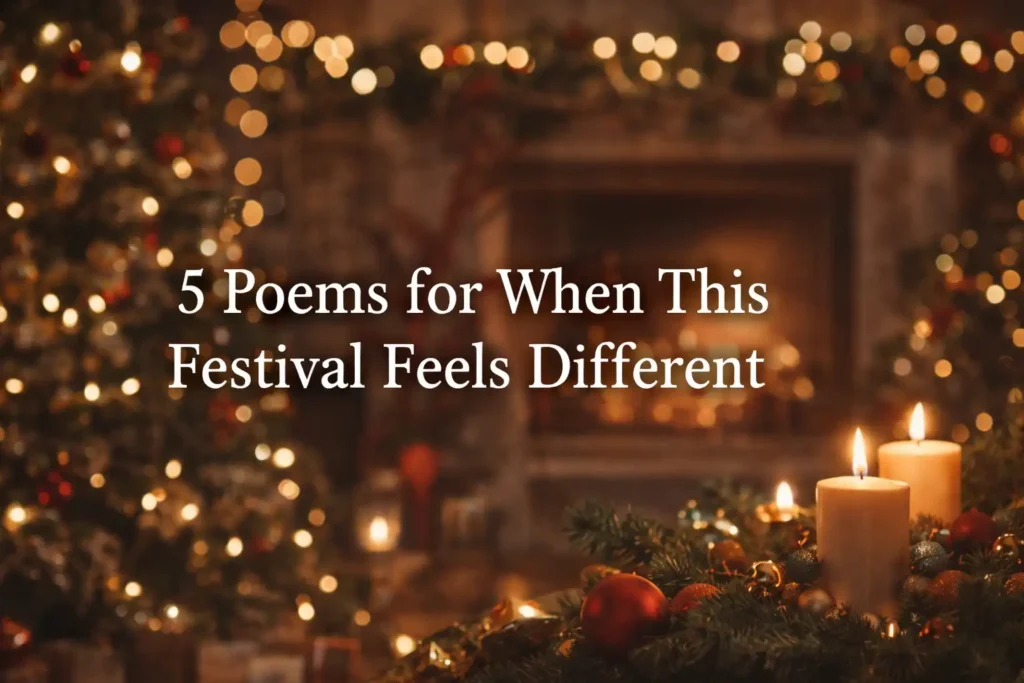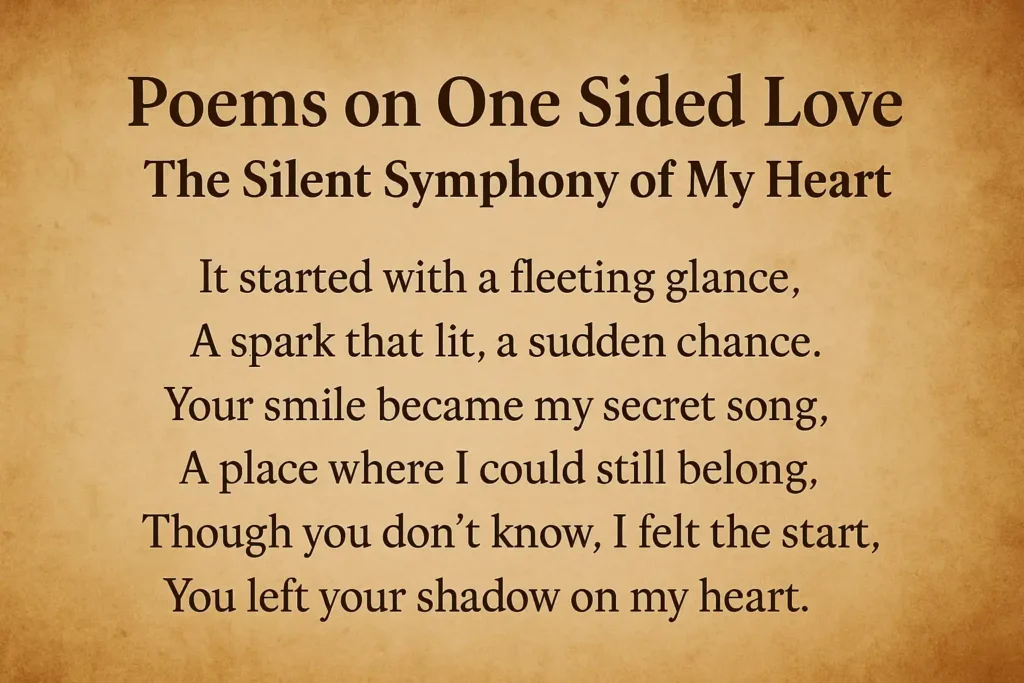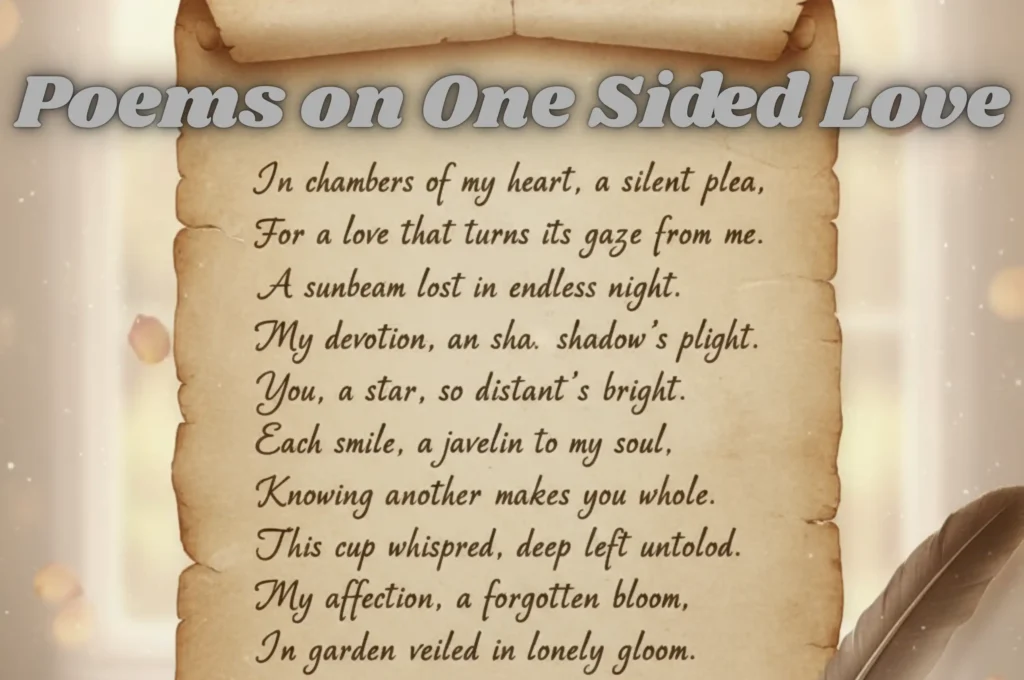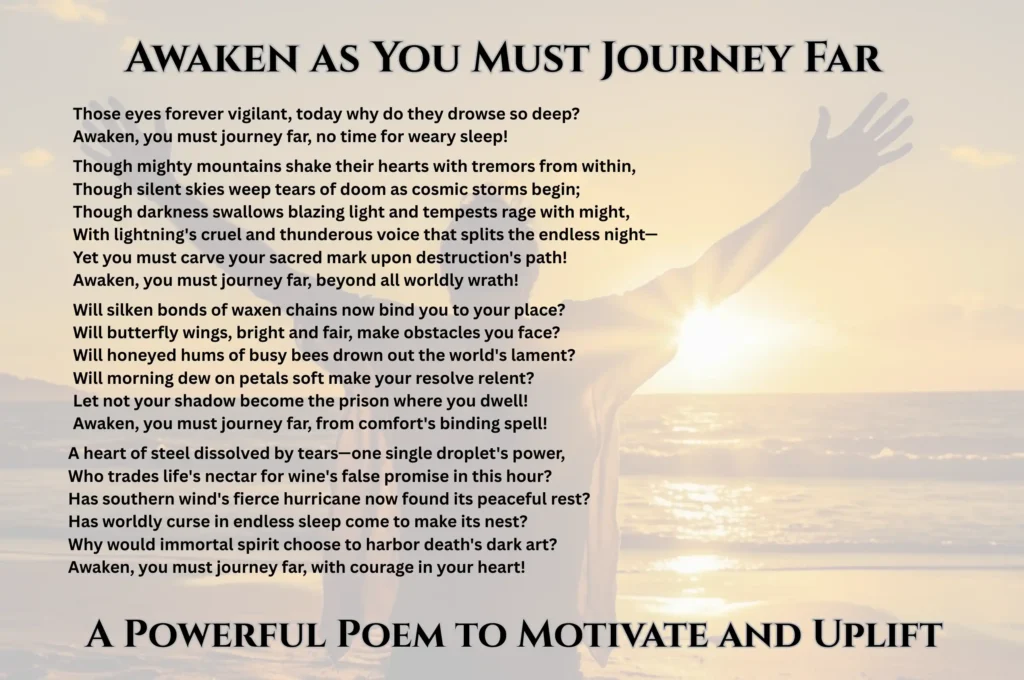“No Coward Soul Is Mine” is a poem written by Emily Brontë, one of the renowned Brontë sisters, who also authored the classic novel “Wuthering Heights.” No coward soul is mine poem is a powerful expression of Brontë’s personal beliefs and her defiance in the face of mortality. We will look into “No Coward Soul is Mine lyrics” and “No Coward Soul is Mine poem analysis”.
The poem begins with a bold assertion: “No coward soul is mine.” This opening line sets the tone for the entire piece, emphasizing strength, courage, and resilience. Brontë asserts that her soul is not timid or weak; instead, it is steadfast and unyielding in the face of adversity.
Also Read: “Character of the Happy Warrior” by William Wordsworth
Table of Contents
No Coward Soul is Mine Lyrics
No Coward Soul Is Mine Poem
No coward soul is mine
~ EMILY BRONTË
No trembler in the world’s storm-troubled sphere
I see Heaven’s glories shine
And Faith shines equal arming me from Fear
O God within my breast
Almighty ever-present Deity
Life, that in me hast rest,
As I Undying Life, have power in Thee
Vain are the thousand creeds
That move men’s hearts, unutterably vain,
Worthless as withered weeds
Or idlest froth amid the boundless main
To waken doubt in one
Holding so fast by thy infinity,
So surely anchored on
The steadfast rock of Immortality.
With wide-embracing love
Thy spirit animates eternal years
Pervades and broods above,
Changes, sustains, dissolves, creates and rears
Though earth and moon were gone
And suns and universes ceased to be
And Thou wert left alone
Every Existence would exist in thee
There is not room for Death
Nor atom that his might could render void
Since thou art Being and Breath
And what thou art may never be destroyed.
No Coward Soul Is Mine Line by Line Explanation
No coward soul is mine
~ EMILY BRONTË
No trembler in the world’s storm-troubled sphere
I see Heaven’s glories shine
And Faith shines equal arming me from Fear
“No coward soul is mine“: This line asserts the speaker’s courage and strength of character. The soul referred to here is not timid or cowardly but rather brave and resolute.
“No trembler in the world’s storm-troubled sphere“: The speaker declares that they are not one who trembles or fears in the tumultuous and chaotic world. Despite the storms and challenges of life, they remain steadfast and unshaken.
“I see Heaven’s glories shine“: Despite the hardships of earthly existence, the speaker finds solace and inspiration in the heavenly realms. They perceive the beauty and majesty of heaven’s glories, which may represent divine grace, spiritual enlightenment, or a higher purpose beyond the material world.
“And Faith shines equal arming me from Fear“: The speaker’s faith in something greater than themselves, whether it be God, spirituality, or an inner conviction, serves as a source of strength and protection against fear. This faith empowers them to face life’s challenges with courage and resilience, knowing that they are supported by something beyond their own limitations.
Overall, these lines convey a sense of spiritual fortitude and resilience in the face of adversity. The speaker draws strength from their faith and conviction, allowing them to navigate the storms of life with courage and grace.
O God within my breast
~ EMILY BRONTË
Almighty ever-present Deity
Life, that in me hast rest,
As I Undying Life, have power in Thee
“O God within my breast Almighty ever-present Deity”: The speaker addresses the divine presence that resides within them, referring to it as “God.” This suggests a deep sense of spirituality and inner connection to the divine. The speaker describes God as omnipotent and omnipresent, emphasizing the divine’s unlimited power and constant presence. This portrayal reflects a belief in a transcendent, all-encompassing deity.
“Life, that in me hast rest, As I Undying Life, have power in Thee“: Here, the speaker acknowledges that their life finds tranquility and peace within the divine presence. Despite the turmoil and challenges of existence, they experience a sense of repose and stability through their connection to God.
The speaker asserts their own immortal and enduring nature, describing themselves as “Undying Life.” They find strength and empowerment through their relationship with the divine, recognizing that their power derives from their union with God.
Overall, these lines express a profound sense of spiritual intimacy and reliance on the divine. The speaker finds solace, rest, and empowerment in their connection to God, viewing their life as inseparable from the eternal and omnipotent presence of the divine.
Vain are the thousand creeds
That move men’s hearts, unutterably vain,
Worthless as withered weeds
Or idlest froth amid the boundless main
“Vain are the thousand creeds“: Emily Brontë expresses skepticism towards the multitude of religious beliefs and doctrines held by people. She suggests that these various creeds are futile or ineffective in providing true spiritual fulfillment or enlightenment.
“That move men’s hearts, unutterably vain, Worthless as withered weeds“: Despite the emotional impact that these creeds may have on individuals, Brontë considers them to be profoundly empty or meaningless. This emphasizes the idea that the power to evoke emotions does not necessarily indicate the truth or validity of a belief. Brontë uses the metaphor of withered weeds to convey the idea that these creeds are devoid of vitality, usefulness, and value. Like dried-up plants, they are seen as lifeless and devoid of meaningful impact.
“Or idlest froth amid the boundless main“: Brontë extends the metaphor by likening these creeds to froth or foam on the surface of the vast ocean. This imagery underscores their transience and insignificance, suggesting that they are fleeting and insubstantial in the grand scheme of existence.
Overall, these lines from Emily Brontë’s poem “No Coward Soul Is Mine” convey a sense of disillusionment with conventional beliefs and organized religion. Brontë suggests that true spiritual fulfillment transcends the limitations of religious dogma and doctrine, emphasizing the importance of inner conviction and authenticity in matters of faith.
To waken doubt in one
Holding so fast by thy infinity,
So surely anchored on
The steadfast rock of Immortality.
“To waken doubt in one“: This line suggests the attempt to stir doubt or uncertainty in someone’s mind.
“Holding so fast by thy infinity, So surely anchored on“: Here, the speaker describes the person as firmly clinging to the idea of infinity or eternity. The word “thy” implies possession, suggesting a personal connection to the concept of endlessness. The phrase “anchored on” implies being firmly attached to something. In this context, it suggests that the person’s belief in eternity is deeply entrenched and secure.
“The steadfast rock of Immortality”: The “steadfast rock of Immortality” symbolizes a strong and unyielding belief in eternal life or immortality. It represents something solid and unwavering upon which the person’s faith is built.
Overall, these lines convey the difficulty of causing doubt in someone whose faith in eternal existence is deeply rooted and unwavering. The imagery suggests a strong attachment to the concept of infinity, likening it to an unshakable foundation upon which the person’s beliefs are anchored.
With wide-embracing love
Thy spirit animates eternal years
Pervades and broods above,
Changes, sustains, dissolves, creates and rears
“With wide-embracing love”: This line describes the spirit as possessing a love that encompasses all things, suggesting a boundless and inclusive affection.
“Thy spirit animates eternal years”: Here, the speaker acknowledges that this spirit gives life and vitality to eternity itself, implying that it is the driving force behind the existence of eternal time.
“Pervades and broods above,”: The verb “pervades” indicates that the spirit permeates or spreads throughout, while “broods above” suggests a protective or nurturing presence that hovers over everything.
“Changes, sustains, dissolves, creates and rears”: These verbs describe the various actions carried out by the spirit. It changes, indicating its transformative power; sustains, implying its ability to maintain and support; dissolves, suggesting its capacity to break down or remove; creates, indicating its role in bringing new things into existence; and rears, suggesting its nurturing and fostering qualities.
Overall, these lines depict the spirit as a force of boundless love and power that pervades all of existence, animating and sustaining eternal time while also bringing about change and creation. It is a force that embraces, protects, and nurtures the universe in its entirety.
Though earth and moon were gone
And suns and universes ceased to be
And Thou wert left alone
Every Existence would exist in thee
“Though earth and moon were gone“: This line imagines a scenario where the physical entities of the earth and moon cease to exist.
“And suns and universes ceased to be“: Expanding on the previous line, this phrase suggests an even more dramatic scenario where entire solar systems and universes come to an end.
“And Thou wert left alone“: Despite the disappearance of everything else, this line suggests that a divine or omnipotent entity remains, emphasizing its enduring presence.
“Every Existence would exist in thee“: Here, the speaker suggests that this divine entity contains within itself the essence or existence of all things. Even if the physical universe were to vanish, everything that ever existed would still be encompassed within this divine being.
Overall, these lines convey a sense of the omnipotence and universality of the divine presence. They suggest that regardless of the transient nature of physical existence, there exists a timeless and all-encompassing entity that transcends the limitations of space and time, containing within itself the entirety of existence.
There is not room for Death
Nor atom that his might could render void
Since thou art Being and Breath
And what thou art may never be destroyed.
“There is not room for Death“: This line suggests that there is no space or place where Death can exist or thrive. It implies that Death cannot overpower or dominate the universe.
“Nor atom that his might could render void“: This line further emphasizes Death’s inability to have any power over the smallest particle (atom) in existence. It suggests that Death cannot erase or nullify anything.
“Since thou art Being and Breath“: This line introduces the idea that the essence of life, symbolized by “Being and Breath,” is invincible and eternal. It implies that life itself is so fundamental and pervasive that Death cannot overcome it.
“And what thou art may never be destroyed“: This line concludes by affirming the everlasting nature of life. It suggests that the essence of life, represented by “what thou art,” is indestructible and immortal. It implies that life, in its truest form, can never be eliminated or obliterated.
Overall, these lines convey the idea that life is eternal and omnipresent, and therefore Death has no power over it. They express the resilience and invincibility of life in the face of mortality, highlighting the enduring nature of existence.
No Coward Soul is Mine Summary and Analysis
no coward soul is mine Summary
The poem begins with a bold assertion: “No coward soul is mine.” Brontë declares that her soul is not timid or weak but rather strong and resolute. She expresses her unwavering faith in God and the eternal nature of the soul, asserting that it transcends the limitations of time and space.
Brontë uses vivid religious imagery to convey her beliefs. She speaks of the soul’s connection to heaven’s glories and its union with the divine. Despite the challenges and uncertainties of life, Brontë finds solace and strength in her faith, declaring that even if all earthly existence were to vanish, every existence would still exist within God.
no coward soul is mine Analysis
- Spiritual Resilience: Brontë’s poem is a testament to her spiritual resilience. Despite the trials and tribulations of life, she remains steadfast in her faith, finding comfort in her belief in the eternal soul and its connection to the divine.
- Defiance of Mortality: Brontë defiantly rejects the notion of cowardice in the face of mortality. Instead of fearing death, she embraces the eternal nature of the soul, asserting that it cannot be extinguished by earthly forces.
- Union with the Divine: Throughout the poem, Brontë emphasizes the soul’s union with God. She portrays God as a source of strength, comfort, and ultimate salvation, offering solace to the faithful in times of trial and despair.
- Imagery and Language: Brontë’s use of rich religious imagery and emotive language creates a powerful and evocative atmosphere in the poem. She employs vivid metaphors and symbolic language to convey her spiritual beliefs and convictions.
- Universal Themes: “No Coward Soul Is Mine” explores universal themes such as faith, mortality, and the nature of existence. Brontë’s poem resonates with readers of all backgrounds, offering a message of hope and resilience in the face of life’s uncertainties.
Overall, “No Coward Soul Is Mine” is a profound expression of Emily Brontë’s spirituality and her unwavering faith in the eternal soul. Through vivid imagery and emotive language, Brontë offers a powerful testament to the resilience of the human spirit and its capacity to transcend the limitations of earthly existence.
Topics: No Coward Soul Is Mine, no coward soul is mine lyrics, no coward soul is mine poem, no coward soul is mine line by line explanation, no coward soul is mine analysis
